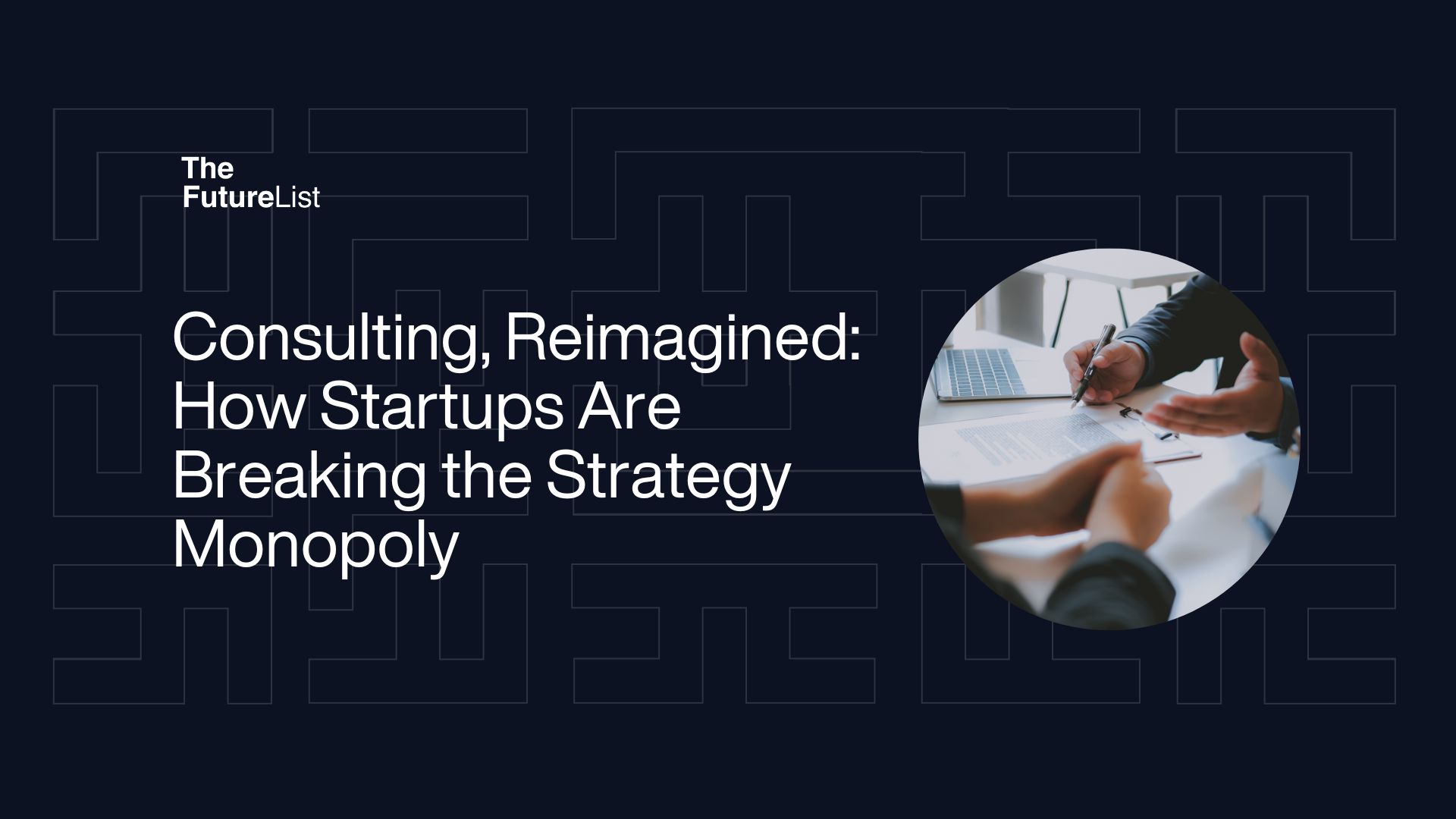
Consulting, Reimagined: How Startups Are Breaking the Strategy Monopoly
By Eric Kamande
Management consulting has long been the domain of elite firms, promising tailored strategies and operational guidance, typically at enterprise-level price points. But that model is being challenged. A new class of technology-first startups, like San Francisco-based Operand, is reimagining what consulting looks like for the digital era. Rather than relying on armies of human analysts, these companies offer leaner, more adaptive approaches to business insight, starting with one of the most opaque levers in retail: pricing.
Cracks in the Traditional Model
The conventional consulting model thrives on bespoke service, high fees, and human capital. Yet this model is increasingly mismatched with today’s business environment, which values speed, affordability, and data-driven iteration. According to LexisNexis, over 80% of consultants now use AI in their workflows, with nearly 40% reporting a significant rise in productivity. In parallel, clients demand personalized solutions, not slide decks of frameworks. The result is a pressure cooker for traditional players, opening the door for innovation.
Operand: Replacing the Deck with a Dynamic Engine
Operand, which recently raised $3.1M in seed funding, is among the startups rethinking how consulting services are delivered. Founded by Ram Gorthi, Arjun Sahney, and Akhil Iyengar, Operand doesn’t simply guide pricing strategies for retail brands; it automates the generation of those insights in real-time.
Using structured data feeds and logic-based reasoning, Operand aims to democratize high-quality pricing decisions once reserved for Fortune 500s. Early adopters, like Lighthouse Marine Supply, are tapping into Operand’s engine to replace the labour-intensive and often inconsistent process of manual pricing strategy with a system that adapts faster than traditional consulting timelines allow.
Beyond Operand: A New Consulting Stack Is Emerging
Operand is part of a broader trend: the unbundling of consulting. Where once a client might pay a single firm for end-to-end guidance, today’s needs are increasingly met by a constellation of specialized platforms:
- Gruve.ai helps enterprises move AI pilots into production without the consulting overhead, billing on usage rather than hourly rates.
- Perceptis supports smaller consulting firms by automating tedious proposal development, enabling them to scale their operations without increasing headcount.
- Pathfindr combines fixed-price engagements with internal tooling that slashes delivery timelines and helps clients operationalize automation themselves.
These firms share a common thread: they reduce reliance on manpower, accelerate delivery, and offer modular, software-like margins. They are not merely tools; they represent a structural shift in how consulting value is created and delivered.
Reinvention or Resistance? How Legacy Firms Are Responding
Established consultancies aren’t sitting still. Möbius, a Belgium-based firm, exemplifies a new hybrid model: combining human insight with digital augmentation. Möbius uses AI and automation to enhance tasks like forecasting and risk analysis, while embedding ESG principles and close client collaboration into its work.
Meanwhile, Accenture continues its acquisition spree, adding AI- and SAP-specialized firms to expand its digital transformation and supply chain offerings. It’s a $3B investment in AI that underscores how seriously the industry takes this pivot.
Still, barriers remain. Human-centered consulting, with its relationship-driven model and trust-based delivery, can’t be entirely automated. But in a world where 58% of consulting work is now done remotely and hybrid models are the norm, the playbook is shifting.
The Road Ahead: Strategy for the 99%
Just as cloud computing brought enterprise-level infrastructure to startups, these new platforms are bringing strategic firepower to small and mid-sized businesses. That doesn’t signal the death of traditional consulting, but it does mark a rebalancing.
As economic conditions fluctuate and digital fluency rises, the consulting firms of the future may not look like firms at all. They might be modular platforms. Self-serve dashboards. Embedded agents. Or hybrids.
Get innovation insights from The FutureList weekly. Subscribe to our newsletter here
Categories
- Agritech
- Artificial Intelligence
- Biotech
- Blockchain
- Climate Tech
- Data Infrastructure
- Edtech
- Events
- Fashion
- Fintech
- Healthtech
- Infrastructure
- Innovation Memos
- Innovation Scout Program
- Insight
- Insurtech
- Machine Learning
- Martech
- Mobility
- Music and Media
- Partner Offers
- Perks
- Procurement
- Proptech
- Retailtech
- Ridehailing
- Ridesharing
- Robotics
- Space Aviation
- Supply Chain
- Talent
- Telecoms
- Uncategorized
- Venture Capital
- Wastetech
- Women In Tech
Recent Posts
- The Rise of Physical AI: Intelligence Moving Into the Real World
- Shaping the Future of Medicine: How Tiny Devices Are Revolutionising Vital Body Functions
- The Rural Health Operating System: Reinventing Access to Care in Africa
- Intelligent Grid Monitoring: How IoT and AI Are Powering the Future of Energy
- Innovation Memo with STEMAIDE: Hands-on STEM Education for Young Africans